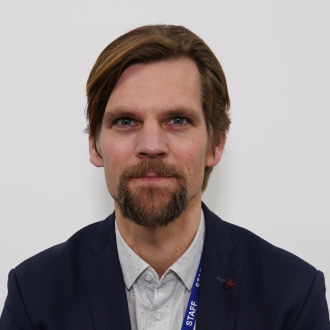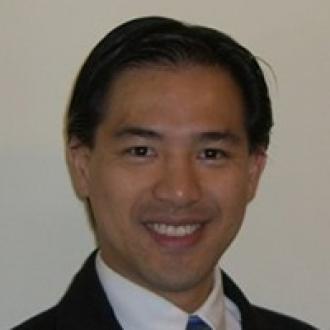- Postgraduate
Biomedical Engineering MSc
Overview
If you want to contribute towards transforming medicine and social care then our MSc Biomedical Engineering degree is for you.
As well as playing a key role in our efforts to live healthier, longer and happier lives, technology improves diagnostics, treatments and management of many health problems.
This course will give you an opportunity to develop advanced specialist knowledge in these areas combined with essential research skills.
Why study Biomedical Engineering?
- one of the fastest growing engineering disciplines
- graduate with a comprehensive and focused body of knowledge
- benefit from expert tuition and top-of-the-range facilities
- tailor-make your studies with an array of optional modules
- develop contacts with major technology companies and healthcare start-ups.
Employment-focused degree
With an ageing population, ongoing care needs, management of chronic diseases and an ever-increasing desire to constantly monitor health and activity, nutritional and other behavioural adjustments, there is a vast range of employment areas open to Biomedical Engineering graduates.

Select your desired study option, then pick a start date to see relevant course information:
Start date:
If your desired start date is not available, try selecting a different study option.
Why study Biomedical Engineering with us?


What our students say…
The best thing about this course is that we are very close as students and to the teachers.It's a very friendly relationship we have and it's easy to get along with everyone. The University lectures are very good because the classes are small and the workshops are very efficient as well, you get one-to-one time with the teachers to make sure you understand everything.




Course detail & modules
Biomedical engineering is one of the fastest-growing engineering disciplines, and this Masters course will be a fundamental stepping stone into this amazing industry.
There are numerous aspects of this branch of engineering because it overlaps significantly with other disciplines, such as Electrical & Electronic Engineering, Mechanical Engineering, Software Engineering and, in particular, Information Technology.
Through a range of specialist modules, our MSc course delivers intensive training in the fundamentals of Biomedical Engineering and will supply you with the technical skills required to excel in this rapidly growing industry.
What will I learn?
By using standard and innovative technology, alongside enhanced teaching and assessment methods, you will build a comprehensive body of knowledge covering areas including:
- basic understanding of biosignals and their processing, typical and range of values
- a range of Healthcare technologies for diagnostics, treatments, lifestyle management and digital health
- understanding of the statistical concepts and limits of various technologies used in medicine
- regulatory, ethical and governance issues around Healthcare Technology.
More reasons to study our MSc Biomedical Engineering
Optional modules: As well as a carefully curated selection of core modules, a range of optional modules enable you to tailor-make part of your studies to suit your own interests.
Expert tuition: Throughout the course, you will be supported in your learning and personal development through participation in industry and research seminars, group discussions, presentations, and coursework.
Contacts: Finally, the School of Computing and Engineering has contacts with major technology companies, as well as health technology-based start-ups, helping you expand your network while you learn.
Compulsory modules
-
Biosignals and Biosignal Processing
This module introduces the fundamental concepts from anatomy and physiology, as well as biochemistry, biophysics and electrical and software engineering, to provide general background knowledge on the subject of Biomedical Engineering, and an understanding of the technical requirements for various biomedical devices and instrumentation.
-
Machine Learning
Machine learning is an application of artificial intelligence that provides systems with the ability to automatically learn and improve from experience without being explicitly programmed.
This module familiarises you with some basic machine learning algorithms and techniques and their applications, as well as general questions related to analysing and handling large data sets. Several software libraries and data sets publicly available will be used to illustrate the application of these algorithms. The emphasis will be thus on machine learning algorithms and applications, with some broad explanation of the underlying principles.
-
Healthcare Technologies
This module aims to familiarise you with the area of Healthcare Technology at the level of devices and systems. A number of biomedical systems will be discussed both architecturally and at the modular level, analysing fundamentals of biomedical signals in addition to the required building blocks for such systems.
The topic of eHealth will be also introduced, with an emphasis on data analytics, software, and mobile phone applications. Finally, the regulatory, ethical and entrepreneurship aspects of Healthtech will be introduced.
-
Research Methods
This module will ensure that you are fully prepared to undertake applied research at Masters level. You will be able to pursue your research ideas and back them up with appropriate data and statistics.
The topics covered include:
Introduction to research
Research process and developing a research proposal
Developing research objectives, choosing research methods, presenting & analysing data, and making conclusions
Building a literature review
Research methodologies in computing
Research ethics
Writing dissertation proposal
Writing dissertation, managing references and using document tools
Identification and use of subject-related library resources; understanding plagiarism
Developing a career plan.
-
Project Dissertation
Optional modules
-
Mathematics of Signal Processing
The Mathematics of Signal Processing module introduces you to advanced mathematical methods for analysing and processing signals and systems.
The module will provide the basics of signal and systems theory, including the concepts of signal dimensionality, analogue and digital domains, main properties and applications. Matlab software will be introduced and taught as a tool for exploring the various theoretical, analytical and experimental aspects of the syllabus.
-
Introduction to Genetics and Genomics
During this module you will develop an understanding of the key areas of genomics, human genetics and genetic variation. You will also examine the genomics basis of diseases and how it can be used to improve health outcomes.
-
Data Management in Healthcare
Data is revolutionising healthcare. The benefits of data when correctly used extend to patients, providers and board members, and the technology can make centralised patient management a reality. The aim of this module is to give you the knowledge and hands-on experience of developments in the broad range of data-driven healthcare.
-
Big Data Analytics
Big data is a fast-growing field and skills in the area are some of the most in-demand today. Big data technologies cover a range of architectures, frameworks and algorithms designed to handle very large and often highly complex datasets.
The module will enable you to understand big data, its applications and associated issues for storing, managing, processing and analysing massive amounts of datasets, as well as become familiar with software tools and frameworks underpinning big data analytics.
You will also acquire the knowledge of statistical, mathematical and machine-learning techniques, and develop the ability to design and implement big data analytics modelling and applications to real-world problems.
-
Statistics and Biomedical Data Science
This module introduces core mathematical and statistical concepts relevant for biosciences and biomedical engineering, focusing particularly on a rigorous description of the mathematical and statistical framework behind popular data handling techniques.
Entry requirements
You should have an honours degree (at least 2:2) in electrical/electronic engineering, biomedical engineering, or in a computing subject.
Applicants with other qualifications will be considered, provided they can demonstrate significant, relevant work experience and the ability to benefit fully from the course.
The key considerations for admissions in these cases will be focused on length of service in specified and relevant roles to the course, cogent motivations in line with a career plan and demonstration of transferable skills applicable to this course.
Find out more about our processes for recognising previous experience.
You need to meet our English language requirement - a minimum of IELTS 6.5, with at least 5.5 for each of the 4 individual components (Reading, Writing, Speaking and Listening). Visit our English language requirements page for information on other English language tests we accept.
You also need Level 6 qualifications at the same level as UK applicants. In some countries where teaching is in English, we may accept local qualifications. Check for local equivalents.
We offer pre-sessional English language courses if you do not meet these requirements.
Fees & funding
Please note:
- Fees for the 2026/27 academic year and onwards may be subject to Government regulation and change.
- Tuition fees are charged for each year of your course. If your course runs for two years or more, you will need to pay the fee for each academic year at the start of that year.
- If your course runs for less than two years, the cost above is for your full course and you will need to pay the full fee upfront.
- If no fee is shown above then the fees for this course are not available yet. Please check again later for updates.
Funding your studies
If you are studying a Masters course you may be eligible to apply for a Postgraduate Loan, this may help contribute towards your course fees and living costs.
Additional funding is available to some types of students, such as disabled students or those with dependants.
We offer a range of scholarships and bursaries, including awards for specific subjects.
Awards for computing and engineering students are also on offer.
Please note:
- Fees for the 2026/27 academic year and onwards may be subject to Government regulation and change.
- Tuition fees are charged for each year of your course. If your course runs for two years or more, you will need to pay the fee for each academic year at the start of that year.
- If your course runs for less than two years, the cost above is for your full course and you will need to pay the full fee upfront.
- If no fee is shown above then the fees for this course are not available yet. Please check again later for updates.
International students - funding your studies
We offer scholarships for international students including International Ambassador Scholarships.
Further information about funding and financial support for international students is available from the UK Council for International Student Affairs.
Teaching staff

Professor Konstantin Nikolic
Konstantin Nikolic is Professor in Computing Science: Artificial Intelligence, Machine Learning and Data Management at the School of Computing and Engineering, University of West London.
Previously he was Senior Research Fellow and Principal Investigator at the Institute of Biomedical Engineering and Department of Electrical and Electronic Engineering, Imperial College London (Jun/2006-Feb/2020). Before that he was an Assistant Professor and then Associate Professor in the Faculty of Electrical Engineering, University of Belgrade, Serbia.
He received the Dipl.Eng. and Masters degrees in Applied Physics from Belgrade University, Serbia, and the PhD degree in Physics from Imperial College London, London, UK.
He is the course lead for MSc in Biomedical Engineering at School of Computing and Engineering, UWL. He leads Bio-Inspired Modelling and Technology research group, which develops methods and computational tools for understanding, modelling and simulating various biological and physiological processes and their applications in bio-inspired electronic systems and diagnostics.
He also leads the research programme which is developing a closed loop system for bimodal neural recording and neuro-stimulation. He has more than 100 scientific publications and is a co-author of several widely used university textbooks on general physics printed in around 10,000 copies. He is an Associate Editor for the IEEE Transactions on Biomedical Circuits and Systems (TBioCAS) and a Member of the IEEE CAS Technical Committee and the Royal Society Neural Interfaces Steering Group.
Konstantin Nikolic is Professor in Computing Science: Artificial Intelligence, Machine Learning and Data Management at the School of Computing and Engineering, University of West London.
Previously he was Senior Research Fellow and Principal Investigator at the Institute of Biomedical Engineering and Department of Electrical and Electronic Engineering, Imperial College London (Jun/2006-Feb/2020). Before that he was an Assistant Professor and then Associate Professor in the Faculty of Electrical Engineering, University of Belgrade, Serbia.
He received the Dipl.Eng. and Masters degrees in Applied Physics from Belgrade University, Serbia, and the PhD degree in Physics from Imperial College London, London, UK.
He is the course lead for MSc in Biomedical Engineering at School of Computing and Engineering, UWL. He leads Bio-Inspired Modelling and Technology research group, which develops methods and computational tools for understanding, modelling and simulating various biological and physiological processes and their applications in bio-inspired electronic systems and diagnostics.
He also leads the research programme which is developing a closed loop system for bimodal neural recording and neuro-stimulation. He has more than 100 scientific publications and is a co-author of several widely used university textbooks on general physics printed in around 10,000 copies. He is an Associate Editor for the IEEE Transactions on Biomedical Circuits and Systems (TBioCAS) and a Member of the IEEE CAS Technical Committee and the Royal Society Neural Interfaces Steering Group.
Study & career progression

- digital health
- medical device industry (designing, developing and manufacturing)
- hospitals/Larger GP surgeries (technology and non-clinical services)
- healthcare start-ups
- consultancy (technical, etc)
- finance (e.g. investments into healthcare services and products)
- teaching
- research
- government regulators.
You could also apply to advance your studies with an MPhil and PhD, either at UWL or another institution.
How to apply

You can apply online at any time by following the link below.
Our application form will ask you for some information about:
- what you want to study
- your previous qualifications or experience
- your references
- how we can contact you.
Want to ask us a question first? We would love to hear from you. Contact us free on:
- 0800 036 8888
- courses@uwl.ac.uk
Apply for this course
Next steps after making your application
We aim to make a decision on your application as quickly as we can. If we need any more information about your qualifications, we will be in touch.
In the meantime, come and visit us and find out more about what studying at UWL is like. Sign up for an open day or join a campus tour.
Visit us and see for yourself
Talk to our tutors and find out about our courses and facilities at our next open day or join a campus tour.
We're here to help
Any questions about a course or studying at UWL? We're here to help - call us on 0800 036 8888 (option 2, Monday – Friday 10am-4pm) or email us on courses@uwl.ac.uk.
Our postgraduate prospectus
All of our courses in one place - download now or order a hard copy.

You can apply online at any time by following the link below.
Our application form will ask you for some information about:
- what you want to study
- your previous qualifications or experience
- your references
- your visa (if required)
- how we can contact you.
Want to ask us a question first? Our dedicated international students’ team would love to hear from you.
- email international@uwl.ac.uk to submit a question
Apply for this course
Next steps after making your application
We aim to make a decision on your application as quickly as we can. If we need any more information about your qualifications, we will be in touch.
In the meantime, come and visit us and find out more about what studying at UWL is like. Sign up for an open day or join a campus tour.
Visit us and see for yourself
Talk to our tutors and find out about our courses and facilities at our next open day or join a campus tour.
We're here to help
Any questions about a course or studying at UWL? We're here to help - call us on 0800 036 8888 (option 2, Monday – Friday 10am-4pm) or email us on courses@uwl.ac.uk.
Our postgraduate prospectus
All of our courses in one place - download now or order a hard copy.
Search for courses
News
UWL holds immersive inaugural Esports and Games Festival
The festival united a community of gamers, students and esports professionals in one space, providing a platform for networking and celebrating gaming culture.

Dr Livia Lantini participates in Royal Academy of Engineering Frontiers Symposium
The Frontiers Programme connects and empowers enthusiastic researchers, innovators and practitioners from around the world to work together on new ways to solve complex global challenges.

Business, computing and engineering students get employment advice at Careers Fair
UWL’s Placement and Employment Services Team hosted a Business, Computing and Engineering Careers Fair on Tuesday 8 October to support students and graduates from the Claude Littner Business School (CLBS) and School of Computing and Engineering (SCE). Almost 500 students and graduates connected with 28 employers.

Student life at UWL
Important notes for applicants
Disclaimer
*Modern universities - defined as higher education institutions that were granted university status in, and subsequent to, 1992.
**The National Student Survey 2023 and 2024 - Average of answers to all questions by registered student population. Excludes specialist institutions.
Testimonials - our students or former students provided all of our testimonials - often a student from the course but sometimes another student. For example, the testimonial often comes from another UWL student when the course is new.
Optional modules - where optional modules are offered they will run subject to staff availability and viable student numbers opting to take the module.
Videos - all videos on our course pages were accurate at the time of filming. In some cases a new Course Leader has joined the University since the video was filmed.
Availability of placements - if you choose a course with placement/internship route we would like to advise you that if a placement/internship opportunity does not arise when you are expected to undertake the placement then the University will automatically transfer you to the non-internship route, this is to ensure you are still successful in being awarded a degree.








